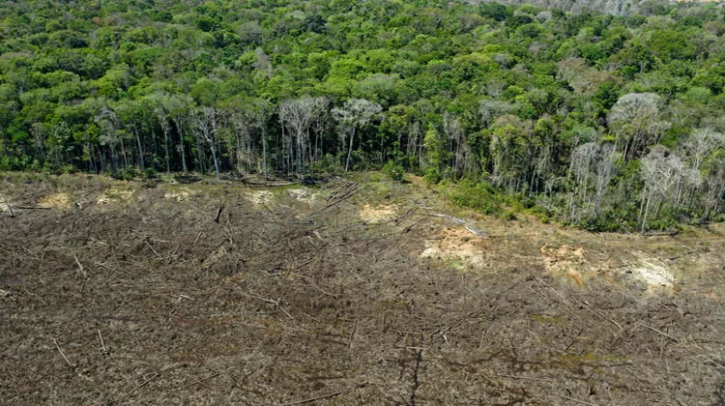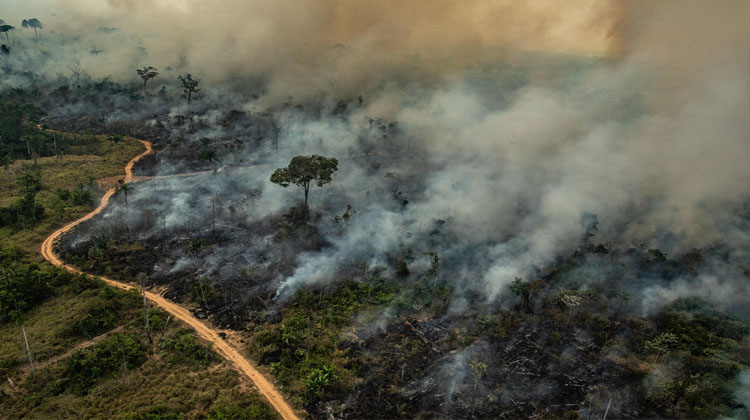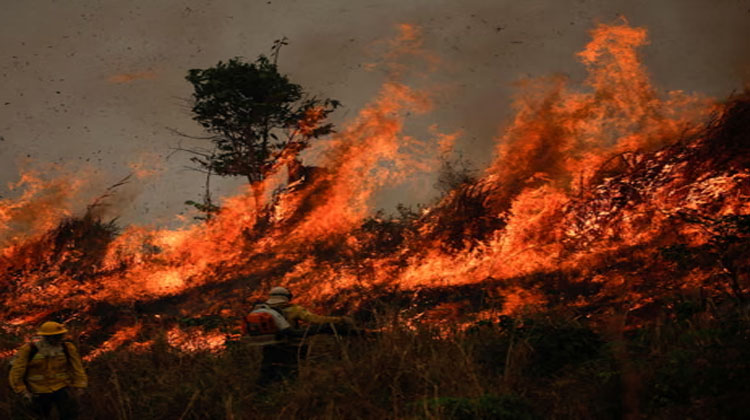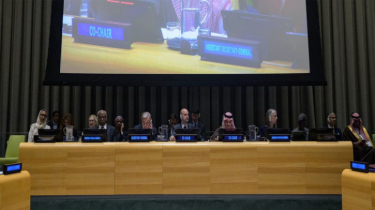Deforestation-driven heat linked to over half a million deaths in past two decades, study warns

Published : 19:50, 27 August 2025
A major new scientific study has found that deforestation in tropical regions has contributed to the premature deaths of more than 500,000 people worldwide over the past 20 years. The research, published in Nature Climate Change, underscores that forest loss is not only an environmental and ecological tragedy but also a direct public health emergency.
According to the findings, large-scale forest clearance in the Amazon Basin, Central Africa’s Congo rainforest, and Southeast Asia has dramatically increased local temperatures, intensifying heat exposure for millions of people living nearby. The study estimates that 345 million people have faced higher heat stress due to deforestation, with around 2.6 million individuals exposed to an additional 3 °C or more of heat beyond global warming trends. On average, this has translated into 28,330 heat-related deaths annually, culminating in more than half a million deaths between 2001 and 2020

Fires blaze across the Amazon forest in Altamira in Pará in 2019, one of the state’s worst years for fires and deforestation. Most Amazon deforestation is caused by slash and burn agriculture, creating pastures for cattle. Image © Victor Moriyama/Greenpeace.
How Deforestation Intensifies Heat
Forests play a critical role in cooling the environment by providing shade, releasing water vapor, and influencing local rainfall. Their removal strips landscapes of these natural protections, replacing them with hotter, drier, and more reflective surfaces such as cleared farmland or degraded land. This amplifies local warming sometimes by several degrees on top of broader climate change, creating dangerous conditions for vulnerable populations, particularly children, the elderly, and those with pre-existing health conditions.
Regional Impacts
The study highlights that Southeast Asia bore the greatest human toll, followed closely by tropical Africa and South America. These regions are not only biodiversity hotspots but also home to rapidly growing populations living in areas where heat, poverty, and limited access to healthcare converge.
In Indonesia, large-scale palm oil plantations have replaced rainforests, exposing millions of rural residents to hotter microclimates. In the Amazon, Brazil’s deforestation surge has worsened both regional droughts and extreme heat, while in Central Africa, logging and land clearing for agriculture have created hotspots of climate vulnerability.

Rainforest burning in Brazil’s Amazonas state last August. The country lost 25,000 sq km of rainforest last year, with Bolivia losing 14,000 sq km. Photograph: Adriano Machado/Reuters
A Global Health Warning
The researchers emphasized that the study marks one of the clearest links yet between deforestation and human mortality, shifting the framing of forest conservation from primarily ecological to also deeply humanitarian. Beyond carbon storage and biodiversity, forests serve as a frontline defense against deadly heat.
“This research shows that deforestation is killing people—today, not in some distant future,” said one of the study’s lead authors. “Every hectare of forest cleared not only releases carbon but also raises the thermometer for communities nearby.”
Policy and Climate Action
The findings arrive at a time when international climate agreements are already under pressure, and many countries are struggling to balance economic growth with conservation. Environmental groups have long argued that halting deforestation could be among the cheapest and fastest ways to curb global warming. This study adds new urgency by demonstrating that protecting forests can directly save human lives.
Experts have called for stricter enforcement of anti-deforestation laws, stronger protection for Indigenous peoples who are among the best guardians of forests, and increased international funding for forest preservation. The study also raises alarms for governments in tropical countries where deforestation rates remain high due to agriculture, mining, and logging.
The Road Ahead
If deforestation continues at current rates, researchers warn that the toll will rise sharply in the coming decades as climate change accelerates. Conversely, curbing forest loss and restoring degraded landscapes could significantly reduce heat exposure for millions of people, easing the strain on health systems and preventing thousands of premature deaths each year.
The study closes with a stark conclusion: saving forests is saving lives. The urgency of protecting the world’s remaining tropical rainforests is no longer just about the climate or the planet’s biodiversity—it is about the health, survival, and dignity of millions of people living in the hottest and most vulnerable corners of the world.
Sources: The Guardian
BD/AN











